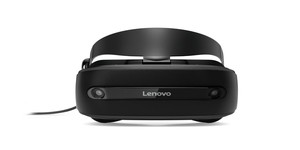Microsoft trademark filing points to new DirectReality API
June 8, 2017 | 12:12
Companies: #microsoft

Microsoft appears to be preparing to add another string to its DirectX application programming interface (API) bow: DirectReality.
Originally known as the Windows Games Software Development Kit (SDK), the DirectX API suite became a central pillar of Microsoft's attempts to convince developers to ditch MS-DOS in favour of writing their games for Windows 95. The promise was simple: Instead of having to write versions of the game for specific graphics cards, sound cards, and networking hardware, a major development headache in the days when every company had developed its own APIs for these things, developers could simply write a single version which addressed DirectX and allow DirectX to worry about addressing the hardware.
The key sections of DirectX include Direct3D, which replaced OpenGL as the go-to 3D rendering API on Windows, Direct2D, the DirectWrite font-rendering system, DirectCompute for general-purpose GPU computing, and DirectX Media Objects; previously, the collection also included DirectPlay for network-based multiplayer, DirectSound for sound playback and capture, and DirectInput for reading keyboards, mice, joysticks, and the like.
Now, it looks like Microsoft may be adding another API to DirectX: DirectReality. First spotted by GameSpot, the company's trademark application is light on details: 'Computer software; computer game software; computer software for holographic applications; Online computer software; online computer game software; online computer software for holographic applications; Software as a Service (SaaS),' the US Patent and Trademark Office's TESS platform briefly explains.
Those key categories, though, combine with the DirectX naming format to reveal the company's likely direction: a new DirectX API designed to help developers produce virtual, augmented, and holographic reality software and hardware, likely centred around the company's previously announced Windows Mixed Reality platform. If so, DirectReality is likely to arrive in an update ahead of the launch of third-party mixed reality headsets, due this summer.
Microsoft has not publicly commented on the trademark filing nor any plans it may or may not have to assist developers with AR, VR, and HR projects by launching a new universal API.
Originally known as the Windows Games Software Development Kit (SDK), the DirectX API suite became a central pillar of Microsoft's attempts to convince developers to ditch MS-DOS in favour of writing their games for Windows 95. The promise was simple: Instead of having to write versions of the game for specific graphics cards, sound cards, and networking hardware, a major development headache in the days when every company had developed its own APIs for these things, developers could simply write a single version which addressed DirectX and allow DirectX to worry about addressing the hardware.
The key sections of DirectX include Direct3D, which replaced OpenGL as the go-to 3D rendering API on Windows, Direct2D, the DirectWrite font-rendering system, DirectCompute for general-purpose GPU computing, and DirectX Media Objects; previously, the collection also included DirectPlay for network-based multiplayer, DirectSound for sound playback and capture, and DirectInput for reading keyboards, mice, joysticks, and the like.
Now, it looks like Microsoft may be adding another API to DirectX: DirectReality. First spotted by GameSpot, the company's trademark application is light on details: 'Computer software; computer game software; computer software for holographic applications; Online computer software; online computer game software; online computer software for holographic applications; Software as a Service (SaaS),' the US Patent and Trademark Office's TESS platform briefly explains.
Those key categories, though, combine with the DirectX naming format to reveal the company's likely direction: a new DirectX API designed to help developers produce virtual, augmented, and holographic reality software and hardware, likely centred around the company's previously announced Windows Mixed Reality platform. If so, DirectReality is likely to arrive in an update ahead of the launch of third-party mixed reality headsets, due this summer.
Microsoft has not publicly commented on the trademark filing nor any plans it may or may not have to assist developers with AR, VR, and HR projects by launching a new universal API.

MSI MPG Velox 100R Chassis Review
October 14 2021 | 15:04








Want to comment? Please log in.